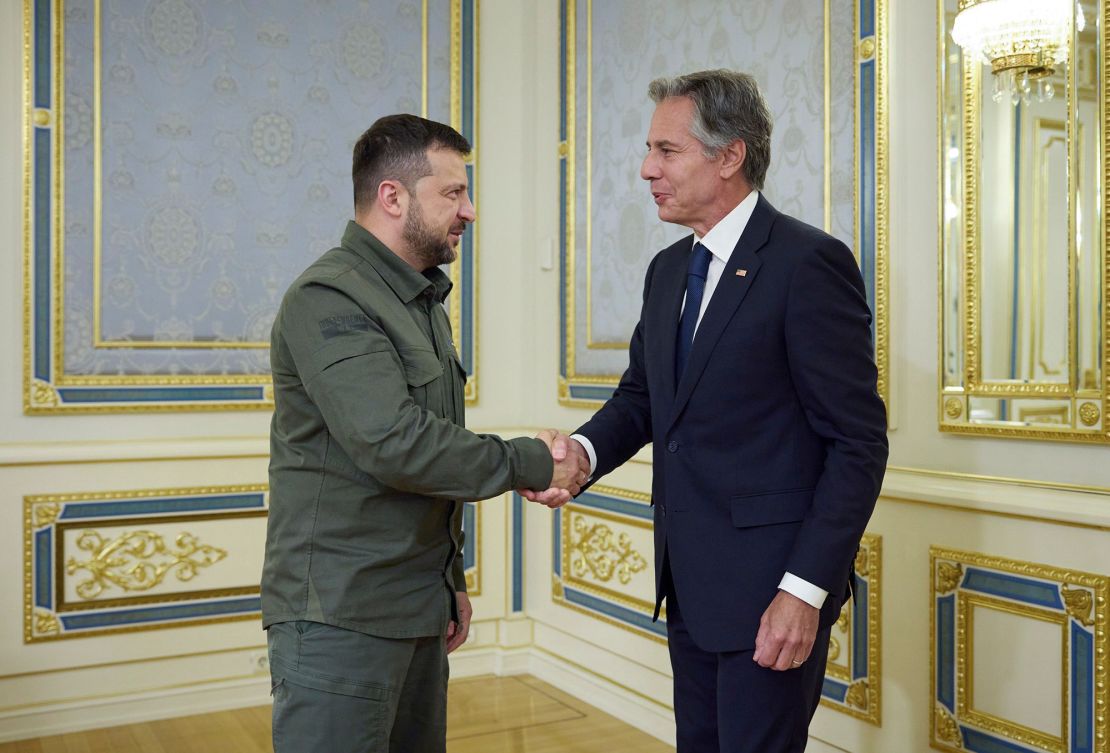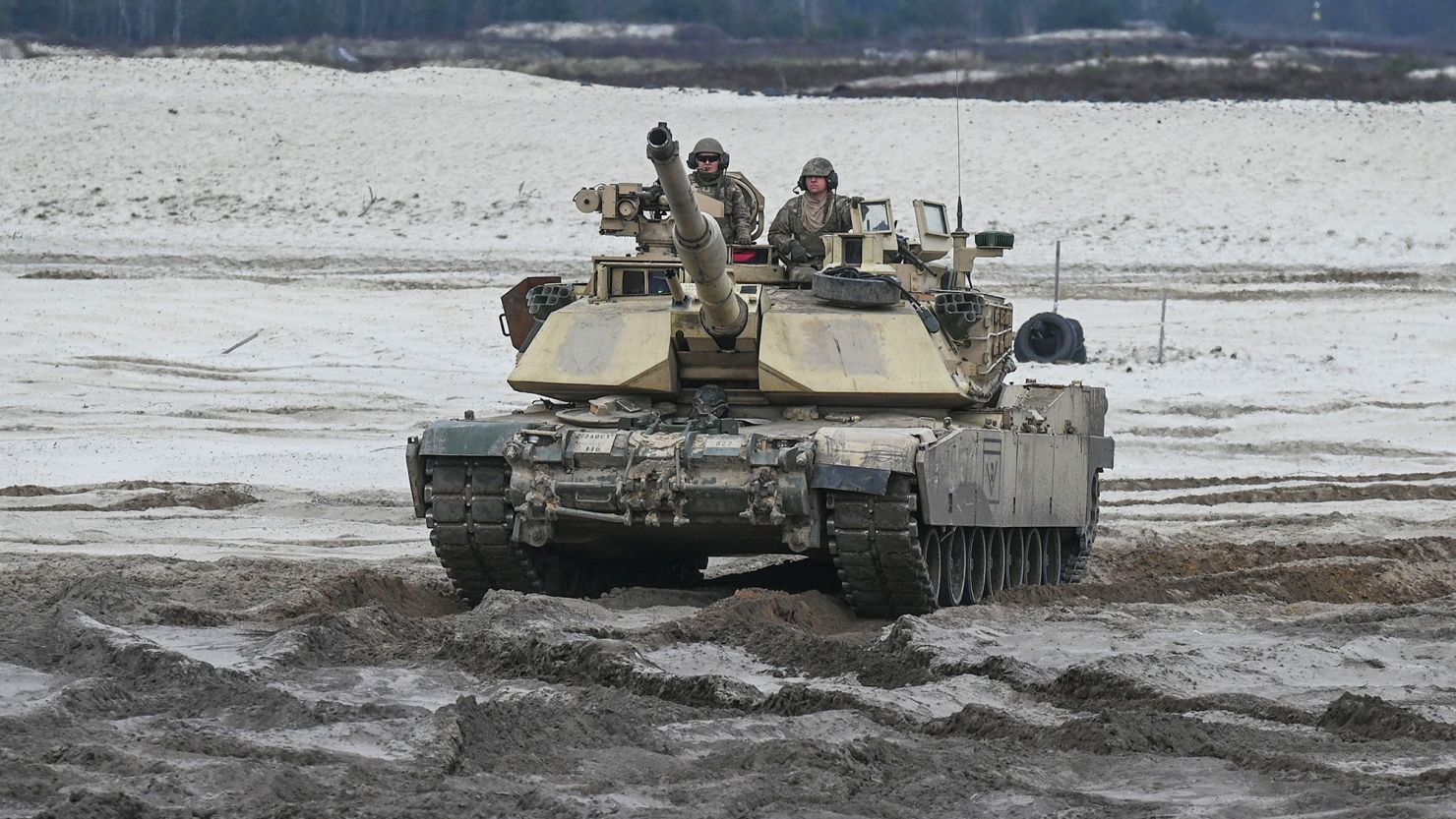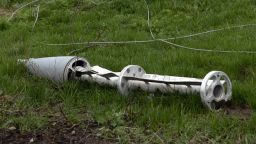The United States has decided to send controversial depleted uranium munitions to Ukraine for the first time, as part of a new aid package worth more than $1 billion announced Wednesday.
The 120mm rounds can be fired from the US-made Abrams M1 tanks and are set to arrive on Ukraine’s frontlines this fall, which both Washington and Kyiv hope will help Ukrainian forces to build on recent hard-earned gains in their ongoing counteroffensive.
But the munitions are mildly radioactive, raising queries about their safety and the risk they could pose to civilians, and drawing fierce criticism from Moscow.
Here’s what you need to know about depleted uranium munitions – and why their use has sparked questions.
What is depleted uranium?
Depleted uranium is what is left over when most of the highly radioactive isotopes of uranium have been stripped out of the metal for use in nuclear fuel or nuclear weapons.
It is far less radioactive than enriched uranium and unable to produce a nuclear reaction. But depleted uranium is extremely dense, making it a highly effective projectile. It is almost twice as dense as lead, the metal used in standard ammunition.
“A common misconception is that radiation is depleted uranium’s primary hazard,” according to a report from the RAND Corporation. “That is not the case under most battlefield exposure scenarios.”
Instead, what makes depleted uranium so effective is its ability to tear through the armor of enemy tanks, as it becomes sharper on impact with a target.
“It’s so dense and it’s got so much momentum that it just keeps going through the armor – and it heats it up so much that it catches on fire,” Edward Geist, a nuclear expert at RAND, told the Associated Press.

Why is it controversial?
The International Atomic Energy Agency (IAEA) – the United Nations’ nuclear watchdog – has said that depleted uranium is “considerably less radioactive than natural uranium,” but urged caution when handling.
The agency added that the “main conclusion” of studies done on the health of military personnel exposed to depleted uranium is that exposure could not be linked to any statistically significant increases in the personnel’s mortality rates.
However, while depleted uranium does not significantly contribute to the background radiation that soldiers and civilians encounter, it can pose a danger if it enters the body.
When depleted uranium munitions strike a tank’s armor, it can ignite and produce uranium dusts or aerosol particles, which, if inhaled, can enter the bloodstream and may cause kidney damage.
“High concentrations in the kidney can cause damage and, in extreme cases, renal failure,” according to the IAEA.
Deputy Pentagon press secretary Sabrina Singh told CNN on Wednesday that the US is confident the Ukrainians would use the munitions responsibly.
“These rounds are standard use in the tanks that not only the US uses, but that we will be providing the Ukrainians,” said Singh. “We have absolute confidence that the Ukrainians will use them responsibly as they fight to take back their sovereign territory.”
The move to provide the depleted uranium rounds comes after US President Joe Biden’s administration decided to send the more controversial cluster munitions to Ukraine earlier this year.
Both types of ammunition, the US believes, will help the Ukrainians break through Russian defensive lines as Kyiv bids to reclaim its territory.
Have other countries sent them to Ukraine?
The United Kingdom defense ministry confirmed in March that it would send depleted uranium munitions to Ukraine, drawing a sharp and immediate rebuke from Russian President Vladimir Putin.
“Today it became known that Great Britain… announced not only the supply of tanks to Ukraine, but also shells with combined uranium,” Putin said at the time.
“I would like to note that if all this happens, Russian will have to react accordingly. I mean that the collective West is already starting to use weapons with a nuclear component.”
UK officials accused Putin of “deliberately trying to disinform” about the weapons, adding that “the British Army has used depleted uranium in its armor piercing shells for decades.”
“It is a standard component and has nothing and has nothing to do with nuclear weapons or capabilities. Russia knows this, but is deliberately trying to disinform,” said a defense ministry spokesperson.
How has Russia responded?
Russia’s foreign ministry described the US move as a “criminal act.”
“This is not just an escalatory step, it is a reflection of Washington’s outrageous disregard for the environmental consequences of using this kind of munitions in a war zone,” Russian deputy foreign minister Sergei Ryabkov said at a Thursday news conference, according to Russian state media RIA.
Previous reporting from CNN’s Jessie Gretener and Darya Tarasova.





